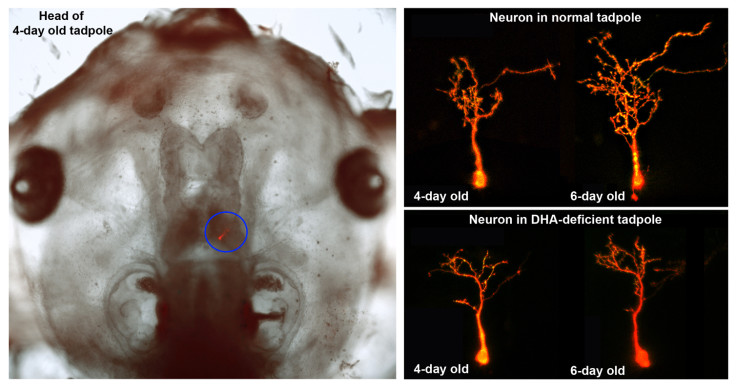Neuroscience: Fish oil fatty acids vital for brain development

Fatty acids found in fish and other foods play an important role in early brain development in humans, according to a study by UC Irvine scientists.
The neurobiologists report that dietary deficiencies in these fatty acids can limit brain growth during foetal development and early in life, suggesting that pregnant women maintain a balanced diet rich in these fatty acids.
Deficits in n-3 polyunsaturated fatty acids cause molecular changes in the developing brain resulting in constrained growth of neurons and the connecting synapses that allow the neurons to communicate.
These fatty acids are precursors for docosahexaenoic acid, or DHA, known for playing a key role in the health of the brain. DHA is essential for the development of a foetus's brain and eyes, especially during the last three months of pregnancy.
DHA which makes up 10 to 15% of the total lipid amount of the cerebral cortex is found naturally in breast milk.
In their study, which used female frogs and tadpoles, the UCI researchers saw how DHA-deficient brain tissue fostered poorly developed neurons and limited numbers of synapses.
"Additionally, when we changed the diets of DHA-deficient mothers to include a proper level of this dietary fatty acid, neuronal and synaptic growth flourished and returned to normal in the following generation of tadpoles," Susana Cohen-Cory, professor of neurobiology and behaviour, said.
The researchers could see the changes in neurons and their synaptic connections in real time as frog embryos develop outside the mother and are translucent.
The study appears in The Journal of Neuroscience.
Found in large quantities also in the light-sensitive cells at the back of the eye, DHA accounts for as much as 50% of the total lipid amount of each retina.
While DHA is a vital part of the cellular membrane in every brain cell or neuron, the brain however cannot manufacture it and depends on diet for DHA supplies.
Dietary DHA is mainly found in fish, eggs and meat, besides nuts, flaxseeds, whole grains and dark green, leafy vegetables.
Oily fish - mackerel, herring, salmon, trout and sardines - however contain 10 to 100 times more DHA than the nuts, seeds, whole grains and dark green, leafy vegetables. Jeeves knew his science when advising Bertie, after all.

© Copyright IBTimes 2025. All rights reserved.





















